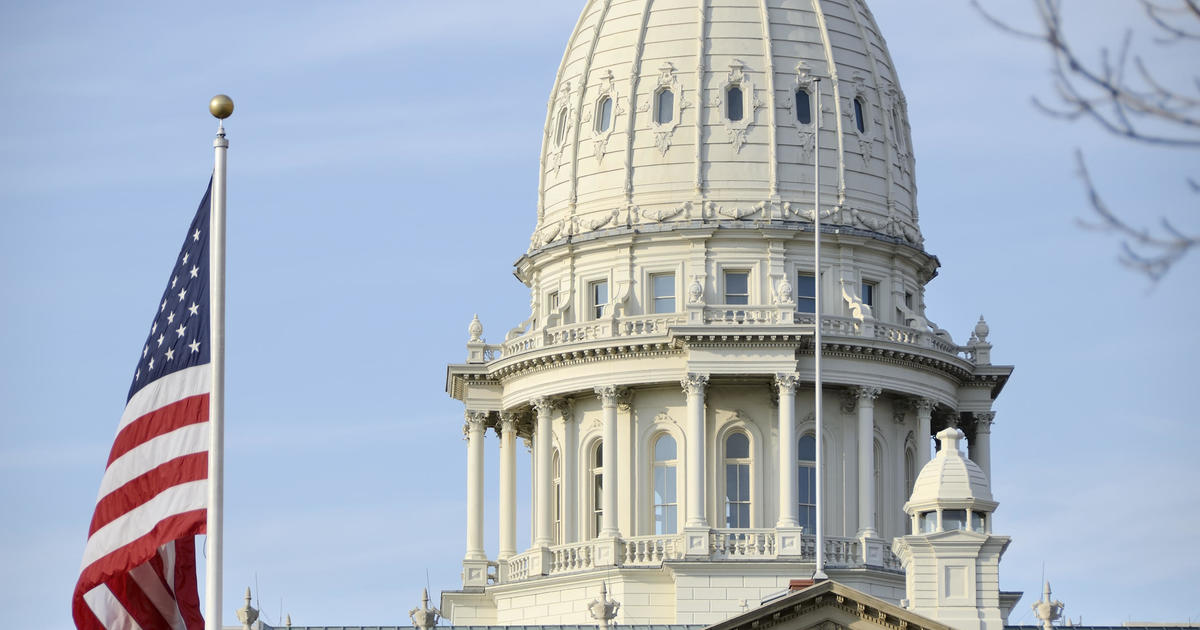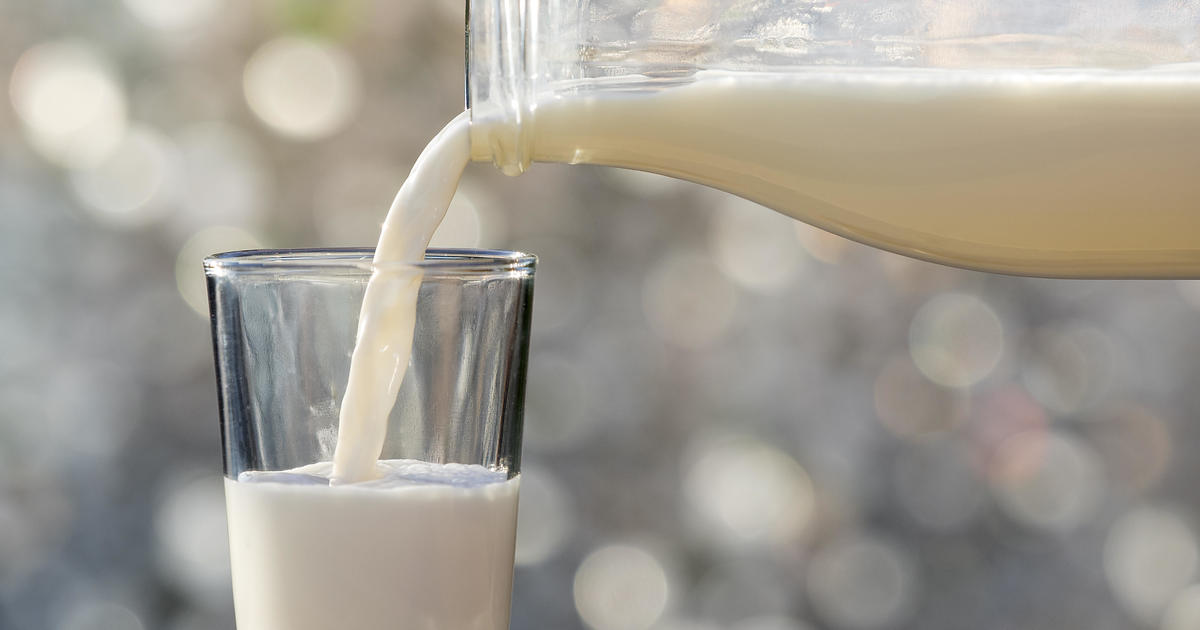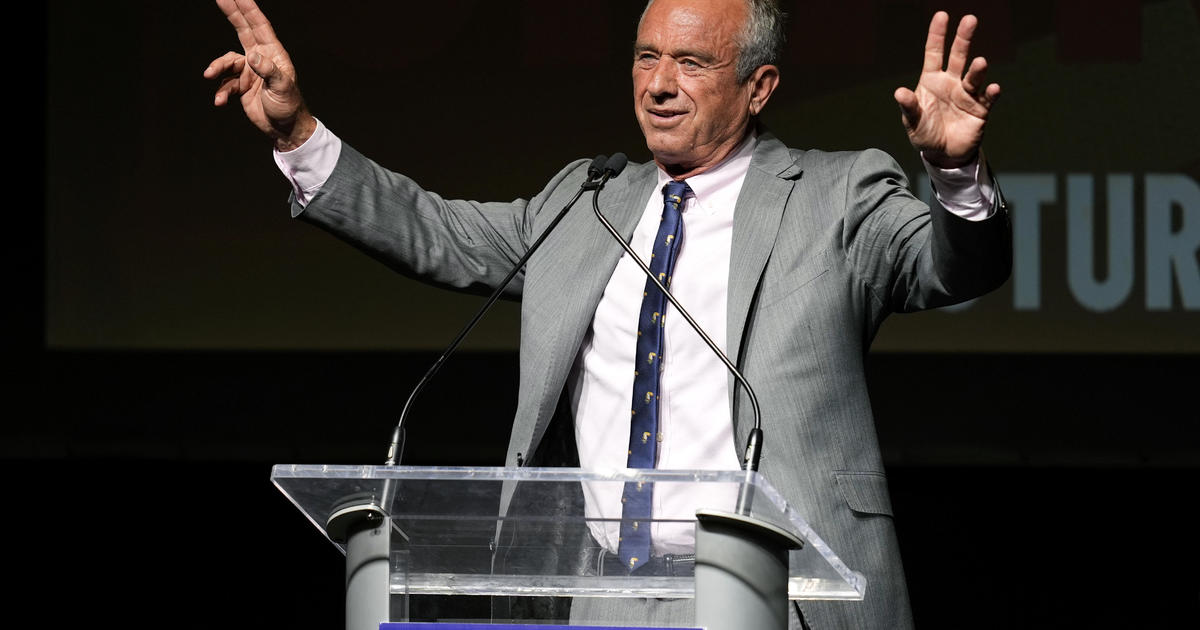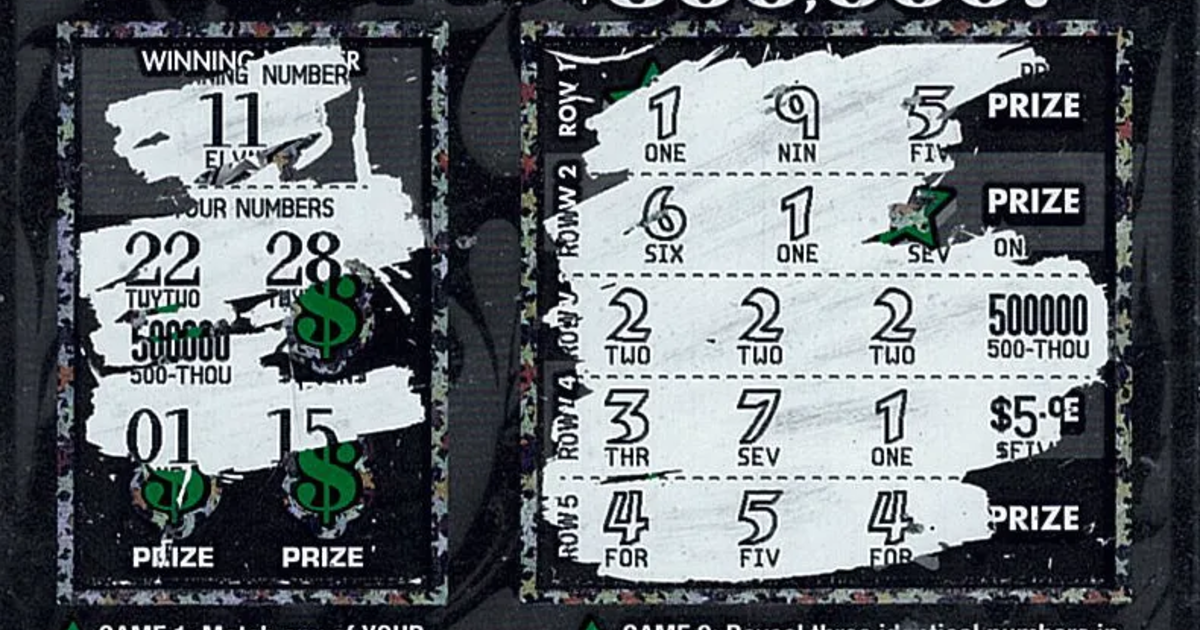Michigan Democrats Introduce Bills Creating Standards For Sharing Human Breast Milk
LANSING (WWJ/AP) - Members of the Democratic minority in the Michigan Legislature have introduced bills setting out rules for sharing of human breast milk in the state.
Rep. Erika Geiss of Taylor has sponsored a measure to create standards for human milk banks in Michigan. The bills would establish best practices for screening mothers and create guidelines for collecting, processing and providing human milk.
When she announced the legislation in March, Geiss said repeated research shows that feeding breast milk to premature infants has both short- and long-term benefits for the babies -- regardless of whether the milk comes from the mother or another woman.
"Many mothers are unaware that donated breast milk is an option," Geiss said in a statement. "I introduced this bill to help premature babies recover and also raise awareness of this critical issue."
Michigan's infant mortality rate is among the highest in the nation, at 7.1 deaths per 1,000 live births. One of the top causes of infant death is necrotizing enterocolitis (NEC), which occurs more frequently in premature infants. Using human milk, as opposed to formula, reduces the incidence of NEC and results in lower hospital readmissions and fewer long-term health issues, according to research.
Sen. David Knezek of Dearborn Heights has introduced companion legislation in the Senate. He said it's deeply concerning that some Michigan cities have infant mortality rates comparable with Third World nations.
"Just as members of a community donate to a food pantry to help those in need, mothers have historically been able to donate milk so that at-risk babies can have a better chance at a full, healthy life," he said.
According to current market research, human breast milk is being sold for about $4 an ounce.
In the United States, there are two for-profit companies and one nonprofit that oversees 15 milk banks. Ten nonprofit banks are in development. Along with Michigan, New Jersey is considering legislation to license banks, while legislators in California, Maryland, New York and Texas already have regulations.
Mothers have long had far from a monolithic view on the question of milk banking, but what's changing is the availability of more options as the industry matures. For some, the work involved in cleaning bottle parts and in pumping and storing their milk warrants being paid. Others view donating their milk, considered superior to formula in nutrition and immunity-building qualities, as a charitable service.
"You just never know who it's going to," said Kelli Russell, of Washington, North Carolina, who donates her breast milk. "It could go to someone who could someday cure cancer or it could be someone that marries my son or takes care of me if I need help one day if I'm in the hospital."
There's broad agreement in the milk-banking industry of a shortage of human milk available for hospitals and NICUs. The nonprofit Human Milk Banking Association of North America estimates that there are 4,000 moms using its banks across the country and that it would take 60,000 to meet the demand for milk in hospitals nationwide.
There is also a largely shared view that it's important for donor milk to be thoroughly screened for bacteria, drugs and adulteration by cow's milk.
But the agreement largely stops there.
The nonprofits say they respect the right of moms to sell their milk because it is theirs, but they question the profit motives of companies like Medolac, Prolacta and the soon-to-be-operational International Milk Bank.
"I don't know if you want the market influenced. You want the market served," said John Honaman, executive director of the nonprofit Human Milk Banking Association of North America. He said he worries the for-profit banks draw potential donors away from association milk banks, which is a problem because he believes a spirit of altruism should govern the industry.
The for-profit companies, which offer moms $1 to $2.50 an ounce for their milk and in turn sell to hospitals for roughly $4 an ounce, say that mothers have a right to earn money for their milk and that their model can end the shortage.
Glenn Snow, co-founder of Only the Breast, is about to launch the International Milk Bank, which will link the network of 49,000 members and 65 million ounces of milk within the Only the Breast network with the new for-profit bank.
"We're bringing a massive supply to market," Snow said. "We're going to save a lot of babies' lives."
The competition also centers on how the milk is processed, which is important to reduce contamination. Medolac, for example, highlights that it uses a sterilization process that kills potential contaminants and also allows the milk to be stored at room temperature. Nonprofits use a pasteurization method and then freeze the milk before it's shipped to hospitals, according to the nonprofit milk banking association.
Others, such as Prolacta, specialize in the manufacture of human milk fortifiers, sometimes needed to boost the nutrients in milk intended for premature babies.
Michigan is considering requiring for-profits to abide by nonprofit standards, and lawmakers are calling for regular audits at the for-profit's expense to make certain they're following the guidelines.
TM and © Copyright 2015 CBS Radio Inc. and its relevant subsidiaries. CBS RADIO and EYE Logo TM and Copyright 2015 CBS Broadcasting Inc. Used under license. All Rights Reserved. This material may not be published, broadcast, rewritten, or redistributed. The Associated Press contributed to this report.



